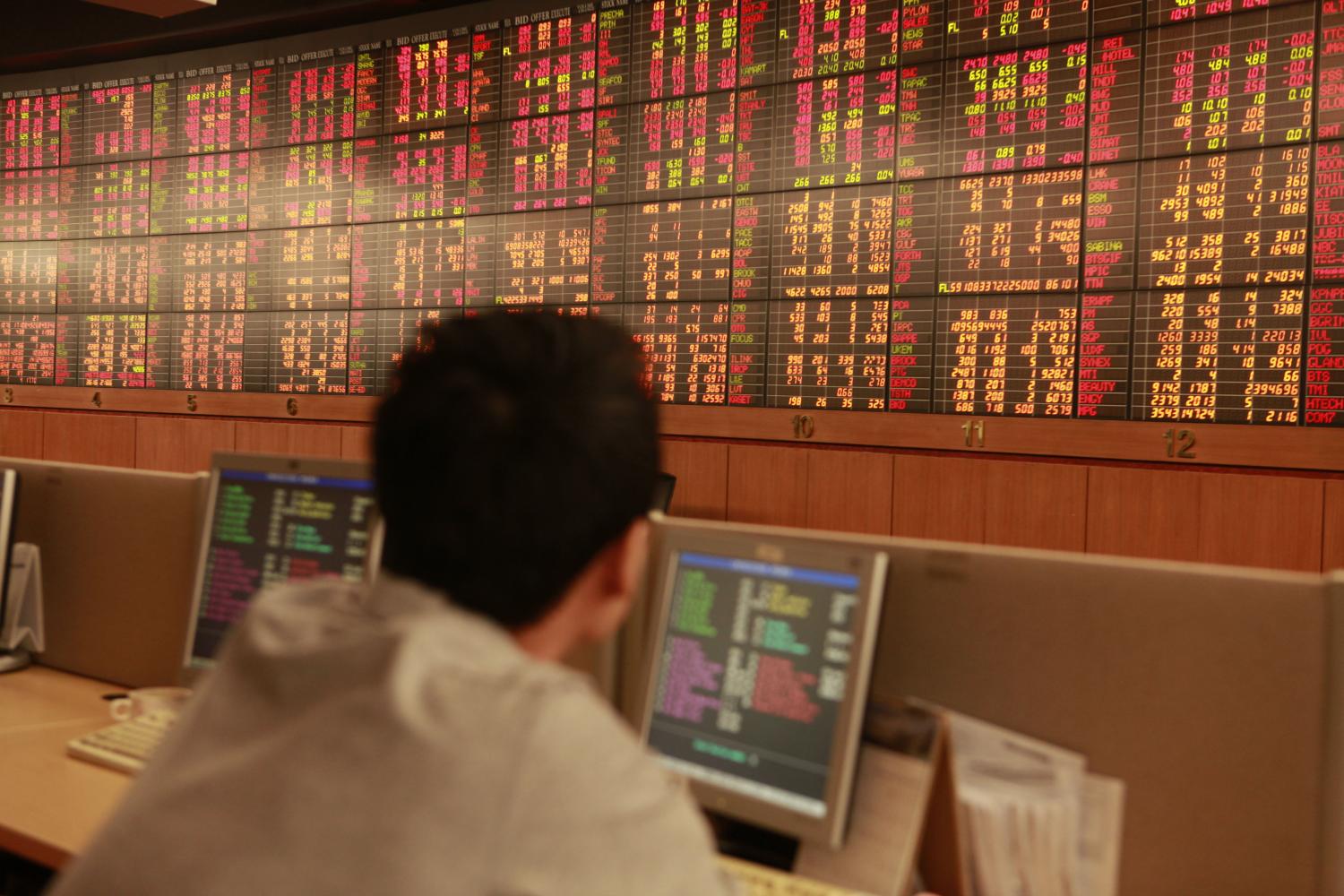
Investor confidence has turned bearish for equities in the Stock Exchange of Thailand (SET) because of increasing concern over tightening monetary policy by the US, rising capital outflows and intensifying geopolitical conflicts, according to a recent survey.
The Federation of Thai Capital Market Organizations (Fetco) reported the investor confidence index in September, which anticipates market conditions for the next three months, was down 41.8% from the previous month to 67.8, drawing back to the bearish zone.
The Federal Reserve's interest rate hikes have dampened sentiment the most, followed by capital outflows and international conflicts.
The tourism recovery is the most influential driver supporting confidence, followed by the economic recovery and the Bank of Thailand's interest rate hike, said Fetco chairman Kobsak Pootrakool.
In the first week of September, the SET Index tracked an upward trend in global stock markets. However, the benchmark index gradually followed the extended global rout on mounting pressure from the Fed's interest rate hike, bearish 2023 global economic outlook following the World Bank's forecast, and the escalating Russia-Ukraine conflict as Moscow tried to draft more troops.
Moreover, FTSE reducing the weight of Thai large-cap stocks effective Sept 16 negatively affected sentiment, causing the SET Index to move in a tight 1,589.51-1,665.74 range, closing at 1,589.51 at the end of the month. That figure was 3% lower than in August.
Foreign investors were net sellers of 24.3 billion baht for the month, but remained net buyers of 146 billion year-to-date.
"In terms of external factors, investors are cautious about the Fed's tightening monetary policy and its next rate move to tame inflation, which is still high, as well as other central banks' monetary policy moves to tackle volatility in the foreign exchange market," Mr Kobsak said.
Other factors to monitor include the global recession outlook and soaring tension in the Russia-Ukraine conflict after Russia claimed annexation of four Ukrainian regions.
Domestically, investors are keeping an eye on the rate landscape after the central bank's Monetary Policy Committee raised its policy rate for the second time last month, bringing the benchmark rate to 1%, he said. Other factors include Thailand's economic outlook, boosted by a revival in tourism, and the local political situation as a general election is expected in the second quarter of 2023.







